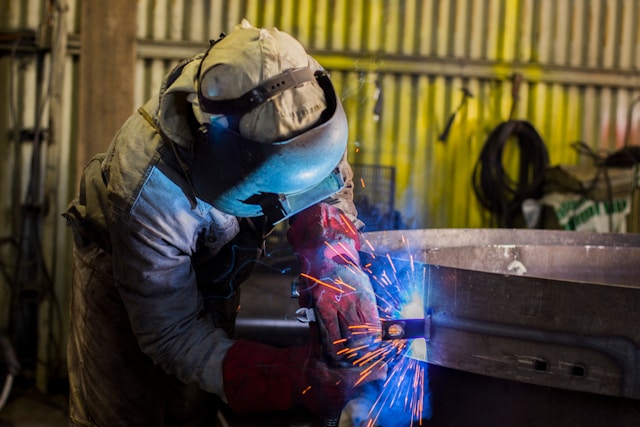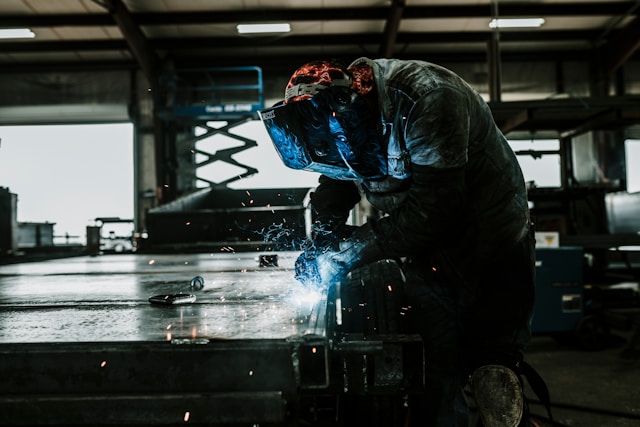Welding is an essential procedure in different sectors, yet it often leaves behind ugly residue and discoloration on the finished products. Traditionally, many have turned to TIG brush pickling paste for weld cleaning. While effective, these chemical remedies might bring environmental dangers that are hard to ignore. Luckily, there’s excellent news! Eco-friendly solutions not only help you retain your projects’ integrity but also protect our planet.
Imagine employing natural products right from your kitchen or sustainable resources that do the job just as well—without detrimental repercussions. Let’s dive into some practical eco-friendly choices for weld cleaning that will keep both your job and the environment shining bright!
Importance of Choosing Eco-Friendly Alternatives
Choosing eco-friendly pickling paste alternatives for weld cleaning is vital in today’s world. With mounting concerns about environmental damage, every small step counts. Traditional chemical remedies sometimes contain harsh compounds that might damage air and water.
Switching to greener methods not only eliminates harmful emissions but also encourages sustainability. By opting for safer items, you contribute to a healthier planet while ensuring the well-being of individuals who deal closely with these materials.
Moreover, eco-friendly choices tend to be more accessible and economical in the long term. They generally employ things that are already in the house or things that come from nature, so they don’t require expensive tools or supplies.
Using sustainable methods in business creates a culture of accountability. It shows that the company cares about quality work and the environment, which is something that people respect more and more these days.

A solution of vinegar and baking soda for cleaning welds
When you mix vinegar and baking soda, you get a strong cleaning solution for welds. This mix works well and is also good for the environment.
Put equal amounts of vinegar and water in a spray bottle to begin. Vinegar has acetic acid in it that helps break down rust and dirt, which makes it easier to clean welded surfaces.
Before spraying the vinegar solution, put some baking soda on the spots that need it. You will see fizzing as they react. This bubbling action lifts dirt and grime off of metal surfaces.
Let it sit for a few minutes, then scrub it with a gentle brush or cloth. Make sure to rinse well with water so that no residue is left behind.
This approach is safe for steel and stainless steel, and it’s easy to find and cheap. Also, it’s not poisonous like many store-bought products that are full of harsh chemicals. Your work area will be grateful!
Citric Acid Mix for Removing Rust and Discoloration from Welds
Citric acid is a potent, natural treatment for cleaning welds. It works wonders on rust and discoloration without the harsh chemicals used in standard treatments.
Mix citric acid powder with warm water to make your weld-cleaning mix. The ratio can change, but you should start with around one cup of citric acid for every gallon of water. Stir until everything is mixed in.
Use a brush or cloth to put the mixture on the areas that need it. Give it 15 to 30 minutes to let the acid do its job on the rust and stains.
After that, wash it well with clean water to get rid of any leftovers. It’s very important to wash off any leftover citric acid, or it could cause more corrosion.
This eco-friendly method will help you restore your metal surfaces while also protecting your health and the environment.

Pumice stone, walnut shells, and corn cob grits are all natural abrasives.
Using natural abrasives to clean welds is a long-lasting and effective method. Pumice stone is a great example because it is light and comes from nature. It gently scrapes metal surfaces without hurting them.
Another great choice is walnut shells, which are known for being good for the environment. When ground into granules or powders, they are a biodegradable option that gets rid of oxidation without hurting the metal’s gloss.
Corn cob grits are also a good abrasive media that stands out. They are not only good for the environment, but they also work very well to polish welds and get rid of dirt on surfaces.
You may have clean, polished welds while having less of an impact on the environment by using these natural options. Choosing these kinds of options not only helps the environment, but it also makes workplaces healthier. With nature-backed solutions at hand, it’s easier than ever to meet quality standards in welding processes without harming our planet’s health.















